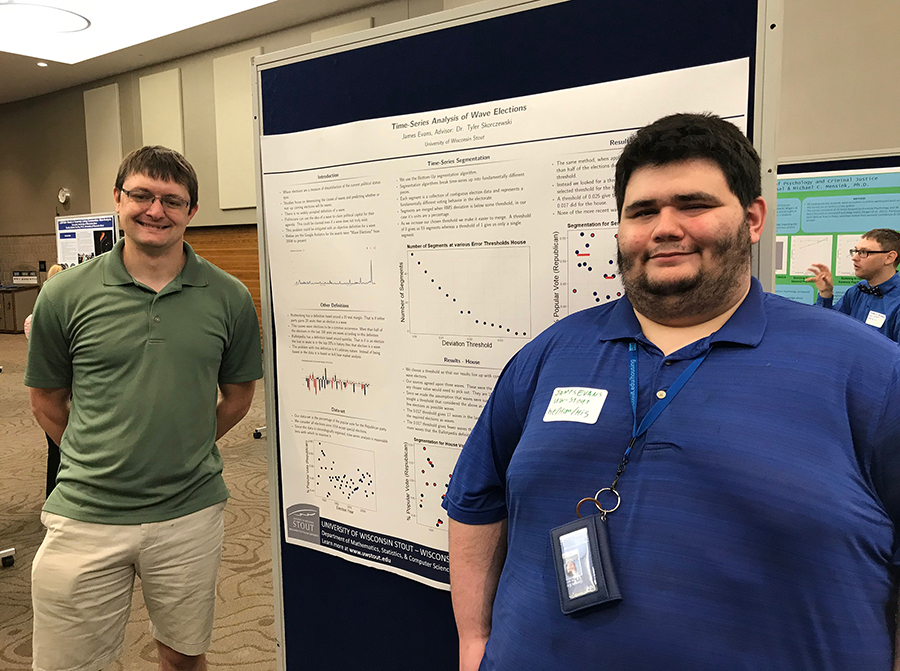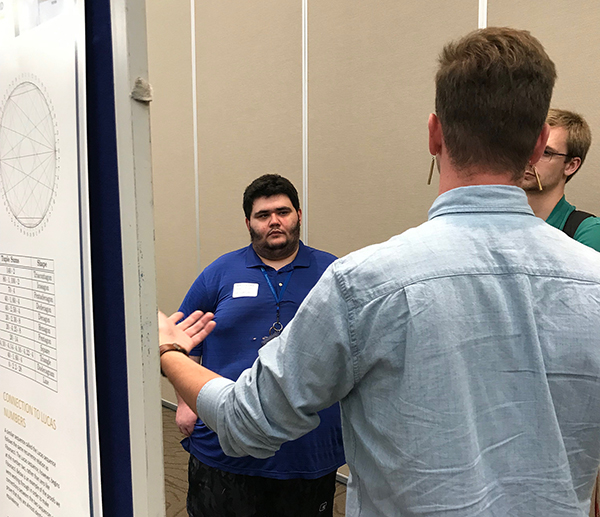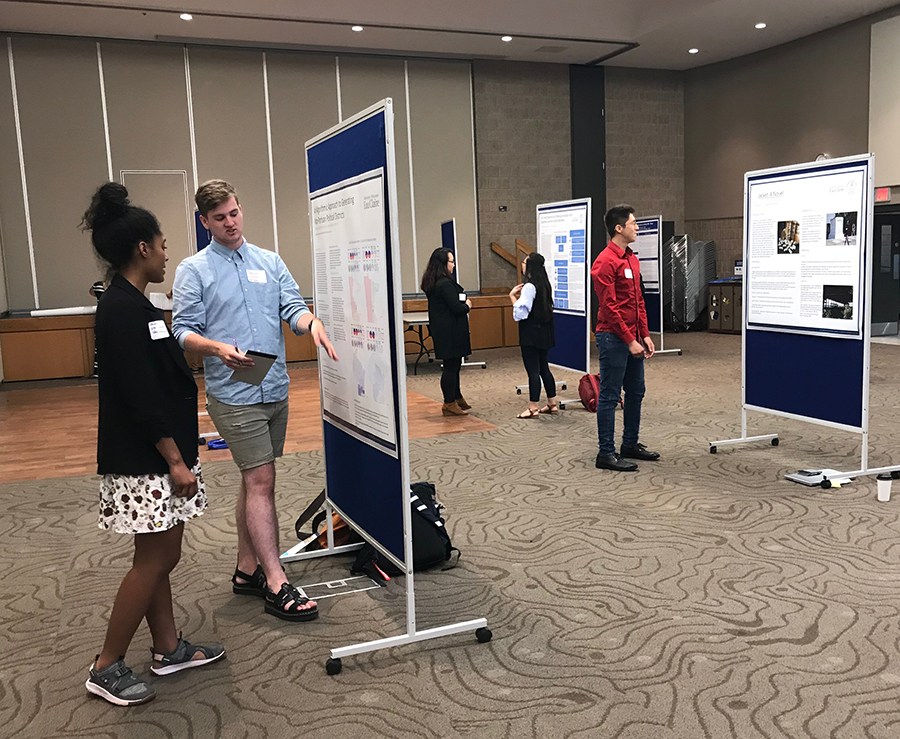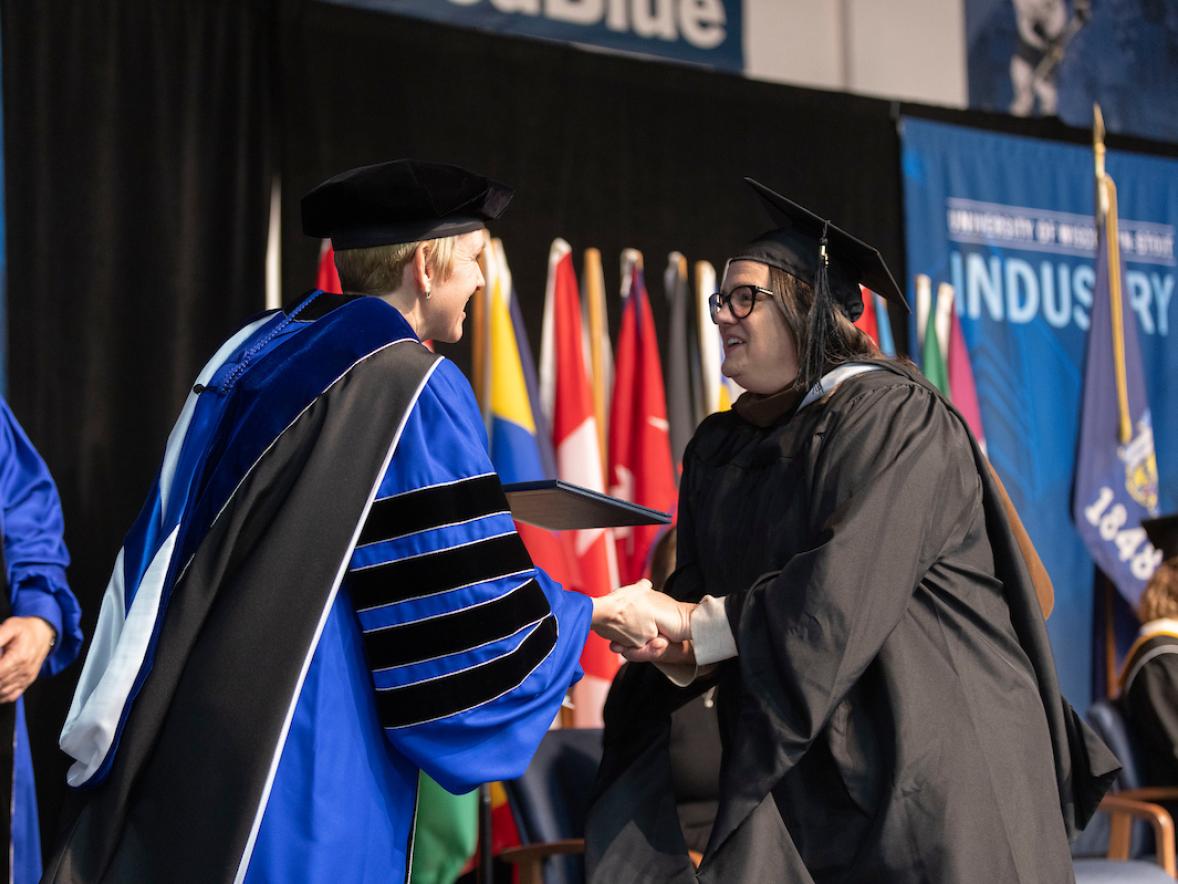Politicians know that if they catch a wave, they could be “sittin’ on top of the world,” as the old Beach Boys surfing song goes.
In the political arena, a wave is a wave election, or a significant shift in power from one party to another. Most people consider the 2018 election in the U.S. House Representatives, when Democrats gained 41 seats, as a wave.
But what exactly is a political wave? An accepted, research-based definition doesn’t exist, says James Evans, a University of Wisconsin-Stout senior in applied mathematics and computer science.
However, he believes it should. That’s why he undertook a math and political science research project, “Time-Series Analysis of Wave Elections.” He presented the research in August at the Mathematical Association of America conference in Cincinnati and at a McNair Scholars Program summer event on campus.
Without a definition, a politician or political party could “put spin on it and use it for political capital,” Evans said. “A definition would allow us to stop arguing about what a wave is and instead what it means to history. It would definitely help us have meaningful discussions.”
Evans, of Chippewa Falls, researched House elections going back more than a century, every two years from 1914 through 2018. Part of his research was obtaining official election results.

Using a segmentation algorithm, he determined a threshold and how far election results had to stray from the threshold to be determined a wave.
Of the 53 elections, he found that 17 — including 2018 — were waves. Generally, 40 or more seats have to flip to be considered a wave with his model.
In 1966, 1994 and 2010, Republicans benefited from wave elections by picking up 47, 54 and 63 seats in the House, respectively. Those big-swing years were always considered waves, and Evans used these as a starting point for his work.
“I thought 2008 to 2018 would be more tumultuous, but the changes were not that drastic,” he said, noting only two waves in the last six elections.
 Using information on U.S. Senate elections was more complicated because of six-year terms vs. two-year House terms and a staggered number of Senate seats up for election every four years, about two-thirds. All House seats are up for election every two years.
Using information on U.S. Senate elections was more complicated because of six-year terms vs. two-year House terms and a staggered number of Senate seats up for election every four years, about two-thirds. All House seats are up for election every two years.
“I made the most objective definition I could considering the issues. I achieved my goal,” he said. His research cited two previous attempts at a definition that he believes are flawed.
Full research experience
His adviser, Assistant Professor Tyler Skorczewski, was happy to see Evans stretch his math skills. “His courses have provided him with good mathematical foundations from which he can learn new things on his own,” Skorczewski said.
Skorczewski also saw Evans grow as a researcher. “I like how he experienced the whole spectrum of a research project. He started with a political research question, did a literature review both in politics and mathematics, learned new mathematics appropriate for the project, implemented those mathematics to get results and then interpreted those results back to the topic of elections.,” Skorczewski said.
The yearlong, independent project allowed Evans to “see a whole project from start to end. It is closer to what he will experience in a graduate program,” Skorczewski said. “Many times in classes we only see some of these parts due to time constraints.”

Evans’ project was part of the McNair requirement to write a research paper between a student’s junior and senior years, said Sarah Wynn, director at UW-Stout. McNair is federally funded and serves first-generation, low-income and underrepresented students and prepares them for graduate school. UW-Stout has approximately 30 scholars each year.
Evans isn’t sure yet where he will attend graduate school, mostly likely for data science. “You can use it to analyze basically any discipline even if they’re not normally looked at with a math-based lens,” he said.
At UW-Stout, about 40 McNair scholars attended the research event in the Memorial Student Center, including from UW-River Falls and UW-Eau Claire, with close to two-thirds of them presenting. The annual event hosted by UW-Stout includes another day focused on graduate school information.
In Cincinnati, Evans had his first experience presenting in a larger venue off campus. “It was exhilarating. I enjoyed it and had the chance to see other student presentations,” he said.
Along with McNair, he is part of UW-Stout’s Honors College and must complete a research paper for that as well. With an interest in history, he is considering studying the ancient history of Rome as written by Livy around the time of Christ.
“The Honors College encourages you go to outside your field and broaden your horizons,” Evans said, calling his UW-Stout experience overall “fascinating.”
###
Photos
James Evans, a UW-Stout senior math and computer science major from Chippewa Falls, researched wave elections in the U.S. House of Representatives going back more than a century. At left is his adviser, Assistant Professor Tyler Skorczewski.
James Evans, left, talks with other student researchers from the McNair Scholars Program.
Students from UW-Stout, UW-River Falls and UW-Eau Claire presented research during a McNair Scholars Program event at UW-Stout.






